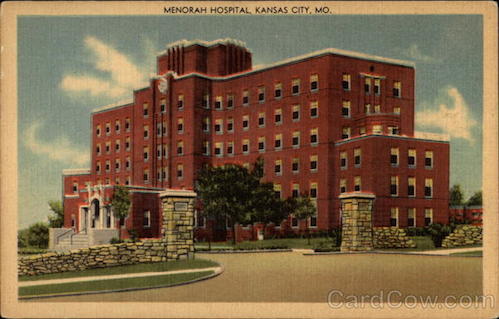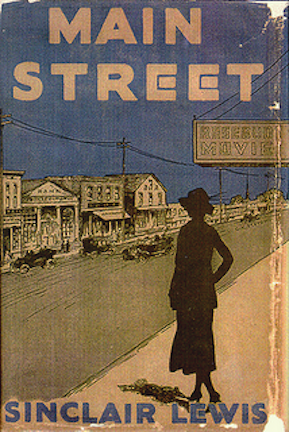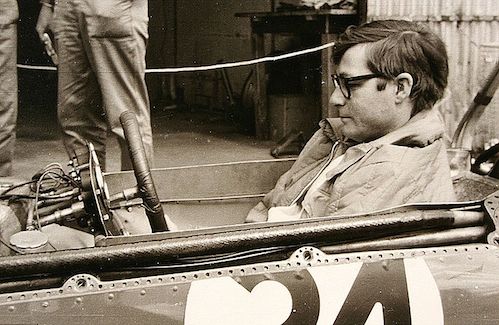When I left Nallwood Junior High in Overland Park for Pembroke Country Day almost 50 years ago, I felt a sense of liberation and elation…
I was leaving the land of Beatle boots, I.D. bracelets, and tight pants (plus mullet-style long hair). I was going to a place of madras, khakis, and tweed jackets (plus obligatory rep. stripe ties). I was abandoning a place where intelligence and literacy were suspect for a place where men of action were expected to be intellectuals. (The headmaster, Calvin Atwood, was a decorated paratrooper in WWII as well as a recognized poet.)
Above all else, I noticed a whole change of attitude, a sea change in one’s world view that went with my new surroundings. It’s only years later that I realize the style and sensibility of the new place were imbibed tacitly. You got with the program quickly because of the examples set by those who came before, the upperclassmen and the alums. (The school still reflected the ethos of the prior 30 years.)
Here are a few of the role models:
Bud Sophian—Bud was the son of Dr. Abraham Sophian, a doctor who founded Menorah Hospital. A star athlete at Pem-Day, Andover, and Stanford; Bud was an excellent student, as well as a handsome, charming guy who managed to date a Hollywood starlet while in college.
 Bud went on to graduate from Cornell Medical School. He volunteered as a medical officer with the 101st Airborne Division. Sophian parachuted into Normandy on June 6th,1944,D-Day. He died two days later when he stayed behind with fourteen wounded soldiers when their position was overrun by the Germans. Even though he had surrendered to the SS, he was executed in a war crime that was all too typical of the fighting in Western Europe. This scion of privilege could have sat out the war state-side but volunteered for the most dangerous role possible. Bud was twenty-nine years old when he died. He is buried at Leavenworth National Cemetery. (His nephew, Dr. Dennis O’Leary, was the physician who saved Ronald Reagan’s life after the Hinkley assassination attempt.)
Bud went on to graduate from Cornell Medical School. He volunteered as a medical officer with the 101st Airborne Division. Sophian parachuted into Normandy on June 6th,1944,D-Day. He died two days later when he stayed behind with fourteen wounded soldiers when their position was overrun by the Germans. Even though he had surrendered to the SS, he was executed in a war crime that was all too typical of the fighting in Western Europe. This scion of privilege could have sat out the war state-side but volunteered for the most dangerous role possible. Bud was twenty-nine years old when he died. He is buried at Leavenworth National Cemetery. (His nephew, Dr. Dennis O’Leary, was the physician who saved Ronald Reagan’s life after the Hinkley assassination attempt.)
Masten Gregory—Formula One race car driver,Gregory was the heir to a K.C. insurance fortune. As a teenager at Pem-Day he could not be apprehended by the police. Slight and bespectacled, he was nonetheless a wild partier, which went with his world class driving abilities since he often had to make a quick escape when the authorities arrived!
A group of friends visited a “haunted” house in what was then rural Johnson County. When his buddies went upstairs to investigate a suspicious noise, Masten set fire to the staircase. Fortunately no one was hurt other than a couple of sprained ankles when people had to bail out upper story windows.
Masten was also in the habit of commandeering the mansion in Prairie Village that was later to give its name to Calvin Crest. The elderly lady who lived there would let Gregory and his friends in when they rang the doorbell on Saturday nights. They would tell her to go up to bed and then when she was safely tucked away, they would start the real party up. The old lady owner repeatedly called the police to complain that a wild teenage party was going on downstairs at her house and they blew it off, thinking she was senile and delusional.
Despite living a seemingly charmed existence, Masten Gregory’s academic career at Pem-Day was cut short. He left to go on the international Grand Prix Circuit where he raced for decades. He outlived all his contemporaries, finally retiring in the 70’s when his best friend was killed in a racing accident. He raced under the name; “The Kansas City Flash.” His signature move was to jump out of a car that was about to crash. I remember reading a how-to-essay of his in Esquire entitled; “How To Exit A Burning Ferrari Going 150 Miles Per Hour.” He died of natural causes at his winter home in Italy in 1985.
Robert Wagstaff, Jr.—Bob Wagstaff showed early promise of greatness. He hocked all the expensive photography equipment his parents had given him to work on the Pem-Day yearbook. He then bought a huge Bultaco (Spanish) motorcycle and drove it home to his family’s home in Mission Hills. He was delighted to see that his mother was chairing a meeting of the Westport Garden Club in the back yard. Bob drove the chopper into the meeting and his mom fainted dead away she was so outraged.
 At Dartmouth College, Bob was known for the habit of driving straight through from Hanover, New Hampshire to Kansas City, a 36 hour marathon, pre-interstate. He was at the top of his class at KU Law. (Bob’s father had graduated from Harvard Law where he studied under Roscoe Pound. Bob’s grandfather was a Federal trial court judge in Kansas.) Bob deliberately went to Alaska to get away from his family’s influence. He built up a successful practice in Anchorage and served as the State’s Attorney General.
At Dartmouth College, Bob was known for the habit of driving straight through from Hanover, New Hampshire to Kansas City, a 36 hour marathon, pre-interstate. He was at the top of his class at KU Law. (Bob’s father had graduated from Harvard Law where he studied under Roscoe Pound. Bob’s grandfather was a Federal trial court judge in Kansas.) Bob deliberately went to Alaska to get away from his family’s influence. He built up a successful practice in Anchorage and served as the State’s Attorney General.
He was never, however, able to fully escape the envy and innuendo that went with it. His middle name is Hall—his mother’s maiden name—and he once heard someone say he only won a major trial because he had the weight of the Hallmark greeting card family behind him. (Bob is not related to those Halls!)
A strong civil libertarian, Robert H. Wagstaff is on the Board of the ACLU nationally. He has written a book protesting the War on Terror and its invasion of personal privacy and civil liberties. His book, “Terror Detentions and The Rule of Law,” was recently published by Oxford University Press.
Bob has three advanced degrees from Oxford, all of which he earned in his 60’s. The last time I saw Bob he was about to fly solo to England to start the first of these degrees, in Philosophy of Law. Like many attorneys in Alaska, Bob has his own airplane and is an accomplished pilot.
As someone who worked for the Bush administration in Washington, I have rather different views than Bob. I still admire him, just as I did Bud Sophian and Masten Gregory. All lived life to the fullest, all showed uncommon courage, and all showed that one can lead a heroic existence, despite the constraints of class and region.
In one of the best passages of Sinclair Lewis’s Babbit, a Midwestern wanna-be intellectual bemoans how dull and provincial life is in his hometown. Sinclair Lewis then shows in two or three pages all the fascinating and dramatic things going on at that moment in the fictional Zenith, Ohio. I think of these lines when anyone belittles life here as bush league. I have only to remind them of these local heroes, class acts in every sense of the term.











https://www.youtube.com/watch?v=i8LOLswfTkQ
https://www.youtube.com/watch?v=Xyh-JpWdGmQ
Holy Carpe Diem!
Well La Di Da.
How effete could the place be if a wild man like Glazer went there?
Well, they would probably have better coke to begin with.
And numerous ‘stings’ to please the administrators.
And Men’s Hair Club would sponsor the athletics.
All true!
interesting read, Dwight.
Yeah, those “constraints of class” are a real bitch to overcome.
Would you rather these guys clipped coupons in Mission Hills, getting sozzled at a country club bar every afternoon? Dying for your country because you refuse to leave wounded comrades behind,fighting big corporations for working people or taking on the federal government over civil liberties,all these are things that your typical rich guy or gal does not do. The Bible says that to whom much is given,much is expected. These guys fulfilled this admonition in spades.
I think my reaction to the story is more the slant of it; people from all walks of life have done this and more. It is no special virtue to do so from a privileged background. Kudos to all of them for lives well lived.
My point is that if everything is handed to you,it’s too easy to sit back and relax. As far as constraints of class are concerned, they are all too real if you ever had to deal with them. Every rich kid is saddled with expectations-of the kind of job that he or she can take,the kind of people they can associate with,the kinds of causes they can espouse,or the enthusiasms they can pursue. “Shut up or you’re cut off !” is the constant refrain. This is not just meant cut off financially but emotionally. One hundred years ago Pittsburgh,Pa. was the equivalent of what Silicon Valley is now,a limitless font of new wealth.Pittsburgh industrialist Henry Clay Frick’s son was interested in natural history,got his doctorate in paleontology,and founded the American Natural History Museum,serving as its first director. The rest of his life he was held up as an example to be avoided to other young people from his background,like Paul Mellon: “There’s no money in digging up dinosaurs !” It may seem silly to you but it is a particular shame to see people with so much opportunity to do good through serving others thwarted by the limitations of their upbringing and the expectations of family. The literary critic Hugh Kenner,describing the tradition of the “Renaissance Man”in American literature, said that money was not an end in and of itself but simply a means,a means of living up to the resources of the human imagination,as tradition has taught you what those resources are. Pem-Day made a good start at teaching us,as it obviously did for the three men I’ve mentioned.My only regret is that I did not take fuller advantage of everything the school had to offer.
Those are some “First World Problems” I could learn to like.
Wow, great story. Seeing the race car picture made me think of all the times I’d talked to Bob at vintage car race events….. Thanks for always bringing it, Sir.
Thank you. Some one who saw the post suggested I write about my cousin Bob too,which I will do shortly.
If you look through the alumni of the oldest KC schools, public and private, you see great leaders (and hucksters who became loved) from their classes. Rich and poor, they all gave back something.
No longer do we care if our brothers and sisters are cold and hungry. But throwing money at the symptoms would solve the causes.
Five directors, or acting directors, of the FBI came from my hs. Though some obscure the fact because of their success.
There is something to be said of the structure you describe. Although some of the byproducts are not so good.